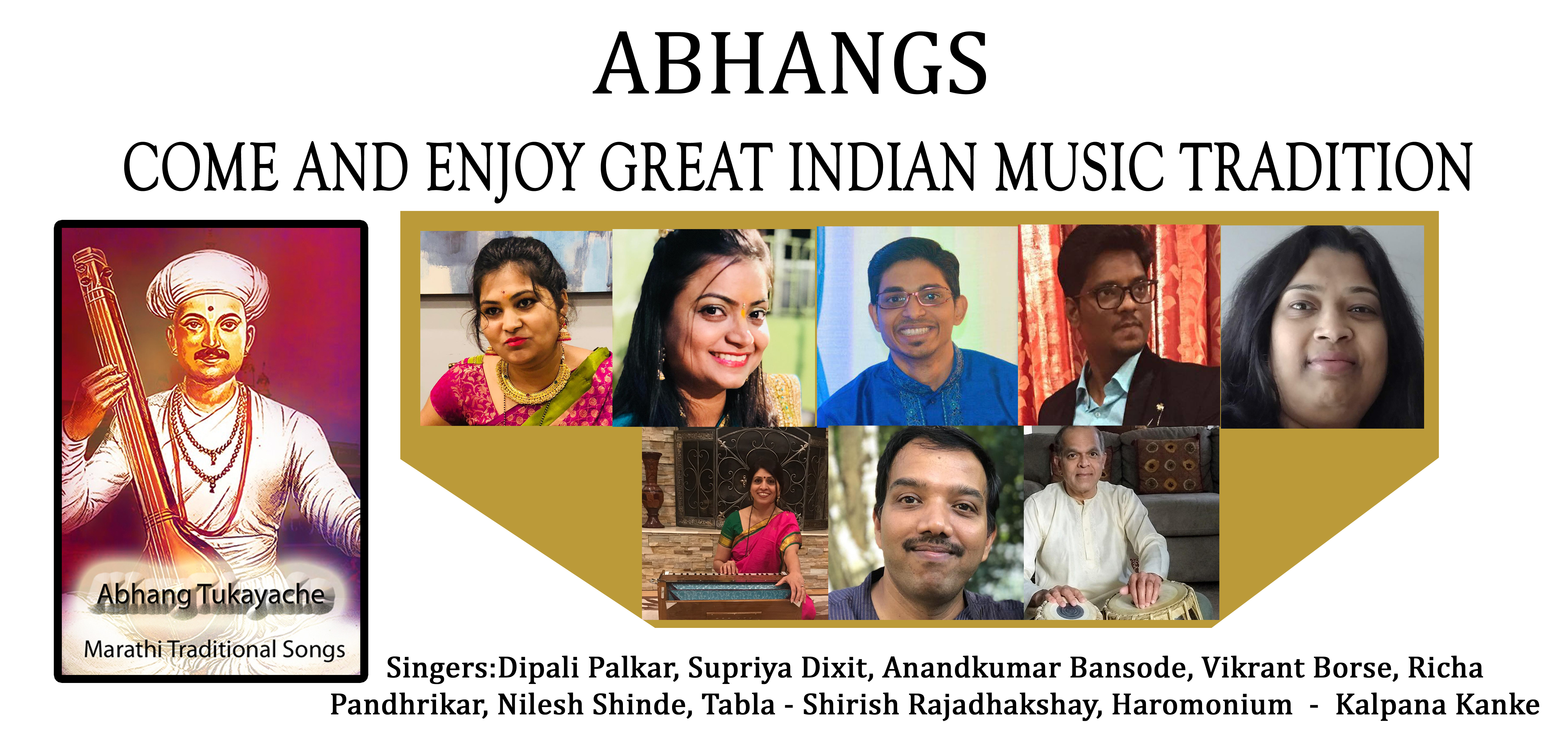
Abhang – the Imortal Composition
Abhang Group in St. Louis
Abhang group is a dedicated group of singers, percussionists, and accompanists. These are dedicated to preserving the tradition of Abhang singing for future generation. They are striving to enjoy the beauty of these songs and trying to teach them to the second generation Indians. All the participants belong to Marati Mandal of St. Louis, which is doing an appreciative job in maintaining Marathi culture for children of Marathi heritage. St. Louis Marathi Mandal aims to achieve its vision through strong support and cooperation of the members. Funds will be raised through membership dues, donations, and fundraisers as needed. Mutual and community benefits will be priorities of its operation. Every member will be committed and obligated to advancing the objectives of the St. Louis Marathi Mandal and uphold its by-laws as stated.